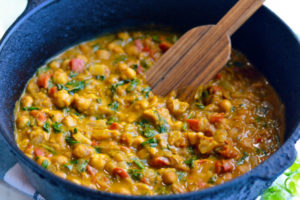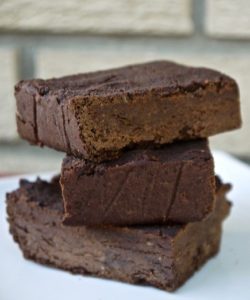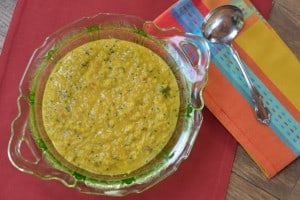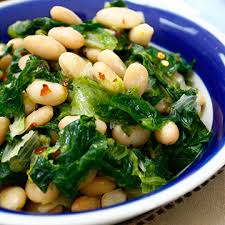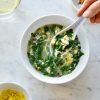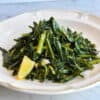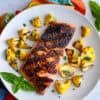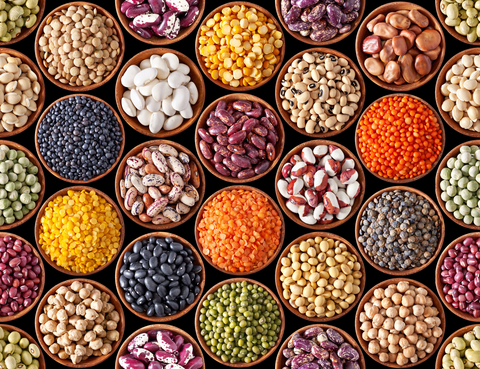 Beans are a controversial food. With so many diets out there how do you know if beans are good for you?
Beans are a controversial food. With so many diets out there how do you know if beans are good for you?
On the one hand, beans are considered a “health” food. They’re loaded with protein and fiber and add heartiness to any meal. They are an essential component of any plant-based diet.
On the one hand, beans are considered a “health” food. They’re loaded with protein and fiber and add heartiness to any meal. They are an essential component of any plant-based diet.
On the other hand, they can cause digestive problems. It’s possible that the lectins in beans create inflammation and the phytates in beans may impair mineral absorption. Many people who follow a Paleo diet don’t eat them. Gas and bloating indicate beans may not be good for you.
In today’s newsletter, I explain the benefits and drawbacks of eating beans. This information along with a process to connect you to the wisdom of your body will help you decide if eating beans is good for your body, mind and spirit.
What are Beans?
Beans include lentils, peas, fava beans, chickpeas, navy beans, pinto beans, black beans, kidney beans. There are over 800 varieties of beans.
Beans are deliciously prepared in many cuisines all over the world. In many parts of Central and South America, Asia and Africa, where meats aren’t a major part of the diet or not readily available, populations chiefly get protein from beans.
Aside from their plant-based protein, one of their best health benefits is they contain a lot of fiber, which affects your whole body, enhancing health and preventing illness and disease.
Are Beans Good For You? – Health Benefits
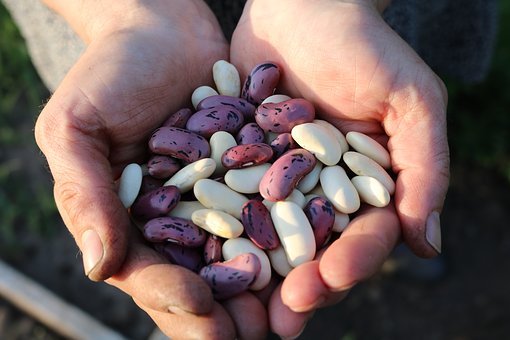 Supports Healthy Blood Sugar
Supports Healthy Blood Sugar
Beans have a low glycemic index and a magnificent blend of complex carbohydrates and protein.
They contain a nutrient found in carbohydrates called amylopectin C which is the slowest carbohydrate to digest. It prevents the starch from spiking blood sugar levels. It keeps blood sugar stable and helps prevent fatigue and irritability.
Great Source of Plant Based Protein
Even though animal products contain the highest amounts of protein, all plant foods contain amino acids, too. Amino acids are the building blocks of protein. Beans are one of the highest sources of plant based protein.
You need protein because it’s the catalyst of nearly every body function. You use it to build and repair tissues. You also use protein to make enzymes, hormones, and other body chemicals. It helps your cognitive function. Protein is an important building block of bones, muscles, cartilage, skin, and blood.
These are the beans with the highest amount of protein
- Lentils – 9g per cup of cooked lentils, one of easiest beans to digest
- Black beans – 15g per cooked cup
- Chick Peas -15g per cooked cup
Even if you’re not vegan or vegetarian it’s good for the planet to eat plant based proteins some of the time. It takes roughly twenty-five times more energy to produce one calorie of beef than to produce one calorie of beans for human consumption.
Good for Your Gut
Beans are rich in fiber, about 10 grams per cup. It’s one of the highest sources of fiber you can eat.
Beans nourish your good gut bacteria and allow them to grow and multiply in your body. Healthy gut bacteria improves the health of your entire body.
Boosts Heart Health
Research shows eating beans decreases the LDL cholesterol levels (the bad cholesterol) associated with a higher risk of heart disease. (5) The Harvard School of Public Health found eating one serving of beans per day could reduce your risk of heart attack by 38%. The soluble fiber in beans binds with cholesterol and eliminates it from the body before it gets into circulation.
Are Beans Good for You? – Downside of Beans
Certain diets like Paleo say beans are not good for you because they contain toxic anti-nutrients called lectins and phytic acid (aka phytate). 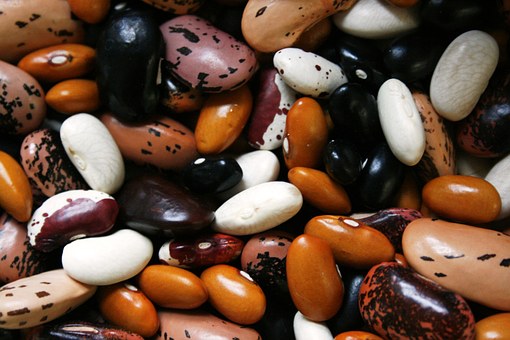
Lectins
Lectins are specific proteins that bind to carbohydrates and exist in plants in varying levels as a protective mechanism.
Lectins are capable of harming the lining of the intestines, especially the microvilli. This happens when the lectins bind to the protein receptors in the intestinal lining, causing damage.
Lectins can contribute to disease and inflammation when they pass through the intestinal wall and float through our bloodstream with other parts of pre-digested food.
Lectins also promote leptin resistance, thereby increasing your risk of obesity.
The good news is it’s safe to consume a limited amount of lectins. Soaking and cooking beans almost completely inactivates the lectins they contain, leaving small amounts of residual lectin activity (2)
Even if there is a small amount of lectin left after cooking, it’s unlikely that it will have a detrimental effect given the presence of simple carbohydrates in legumes that can bind to the proteins. (3)
Phytic Acid (aka Phytate)
Phytic acid is a unique natural substance found in plant seeds. It is often considered an anti-nutrient because it binds minerals in the digestive tract. Phytic acid impairs the absorption of iron, zinc and calcium, and may promote mineral deficiencies (4).
If you’re avoiding beans because of the phytic acid you may be surprised to know cacao beans have about the same amount of phytic acid as most beans. And spinach and swiss chard are higher in phytic acid than almost any bean, nut or seed!
Soaking beans until they germinate activates the chemical phytase, which is an enzyme that will reduce a significant portion of phytic acid in beans.
For many, avoiding lectins and phytic acid, especially for a year or so, can help heal the intestinal lining, help with weight loss, reduce allergy symptoms, and other health improvements. It’s important to listen to your body.
Making Beans Easier to Digest
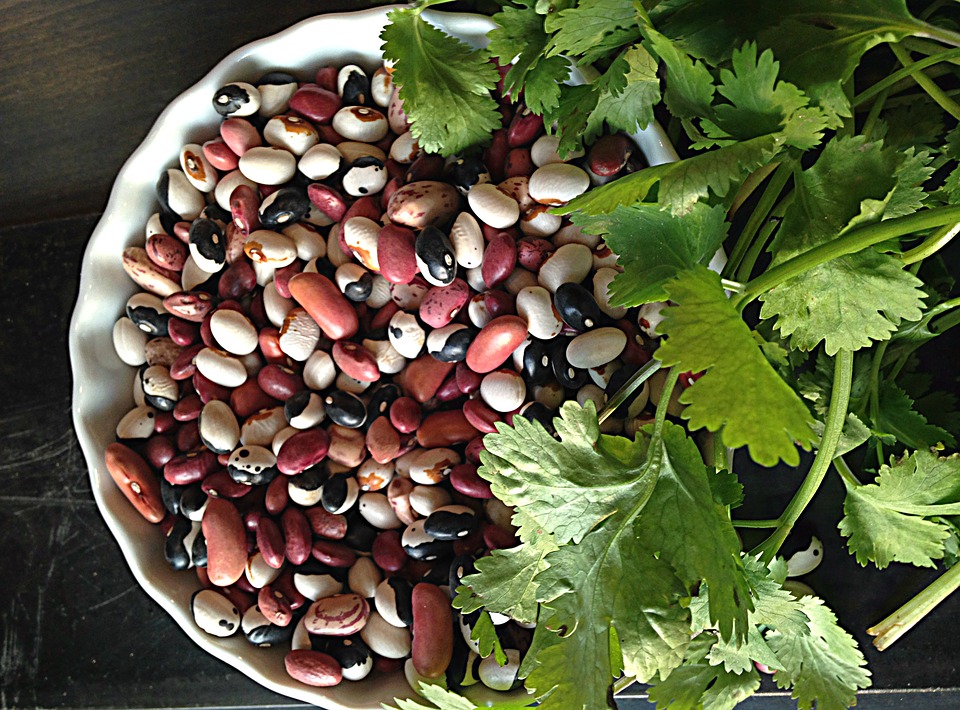 For some people, beans cause digestive discomfort.
For some people, beans cause digestive discomfort.
You probably remember this song from when you were a kid:
“Beans, beans, the magical fruit, the more you eat, the more you toot…”
Yes, it’s funny, but eating beans can be very uncomfortable. Here are a few things you can do to make beans more digestible.
Rinse Thoroughly
Place them into a bowl filled with water. Mix them around, strain, and repeat until the water is clear. This helps to remove dusty residue and stones.
Soak
Soak the beans in water for 12-18 hours before cooking, change the water a few times if possible. soaking beans for around 18 hours can reduce phytic acid by 50 to 70 percent. Soaking also reduces the cooking time.
Rinse Again
Rinse the beans and discard the water before soaking
Cook at High Heat
The best way to destroy lectins is to use a pressure cooker.(5) Many people love the InstaPot a multipurpose pressure cooker. Avoid slow cookers, as they will actually increase lectin content due to the low temperature used. If you don’t have a pressure cooker be sure to cook them on HIGH heat.
Salt At The End
Salt pulls moisture from beans, so wait until they’re almost tender then add salt to the cooking water.
Bonus Tip: Make your beans even healthier by cooking them with kombu – a Japanese sea vegetable that reduces cooking time and makes beans more nutritious and easier to digest.
What about canned beans?
Even though canned beans will have more phytic acid and lectins than freshly cooked beans, they are convenient. We all live in the real world and there often isn’t time to cook beans. Look for BPA free cans with no preservatives and no salt. Eden is a good brand, they add kombu.
To Bean or Not To Bean
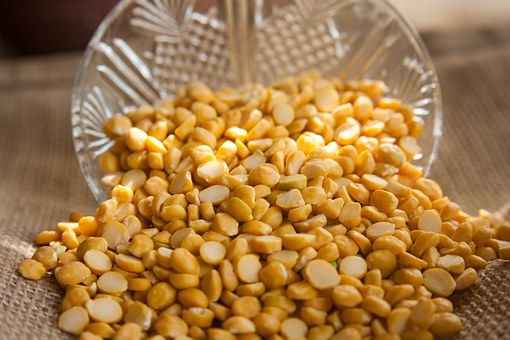 How do you know if beans are good for your body? One way is to see how you feel after eating beans. If they cause digestive stress, you know beans aren’t good for you right now.
How do you know if beans are good for your body? One way is to see how you feel after eating beans. If they cause digestive stress, you know beans aren’t good for you right now.
If you’re not sure, you can tune into your body before eating and ask. Take a few minutes to quiet your mind, and connect to the wisdom of your body, the infinite intelligence in every cell in your body. Then receive the guidance from that place.
Process To Connect To Your Inner Guidance
This is a process I use to get into alignment. From this place, I receive guidance to the foods, people and experiences best for me. It will help you figure out if beans are good for you.
Step 1 – Ask the question. For example “Are beans good for me to eat right now?” and let it go.
Step 2 – Sit comfortably and notice your body. Feel your feet on the floor, your butt on the chair, the temperature of the room. Ask yourself what am I feeling right now? Notice your physical sensations and/or any emotions. No fixing or judging just noticing. Nothing to do.
Step 3 – Put your hand on your heart. Notice your breath.
Open your mouth and gently sigh. As you do, let your shoulders and the muscles of your upper body relax down, with the exhale.
Close your mouth and pause for a few seconds.
Keep your mouth closed and inhale slowly through your nose.
Breathe deeply into your belly as if you were filling up a container, allowing your breath to fill your belly first and pushing your belly out.
Pause for whatever time feels comfortable, you decide how long.
Open your mouth. Exhale through your mouth by pulling your belly in.
Repeat this 3 or 4 times.
Step 4 – Think about something in your life you love or appreciate. You want to experience the emotion of appreciation fully, feel it in your body. You can think about the love and appreciation you feel for a family member, a close friend, your cat or dog even something as simple as your favorite pen, anything that fills you with appreciation. This is the most important step. Do this for 30 seconds.
Step 5 – Return your attention to your body, notice your feet on the floor, the feeling of the chair, the temperature of the room. Ask yourself the original question, don’t look for the answer, allow it to come to you from your inner being you just connected with.
I like to do this process a few times a day to connect to my inner guidance.
It feels really good.
Final Thoughts About Beans
Now that you have a bit more information you can decide, are beans good for you? I only eat beans once in awhile, as I heal my digestive system. I eat a mostly Paleo diet. But I like to think of my diet as more of a template than a rigid set of rules. I am flexible and listen to the guidance of my body as it changes each day.
I hope this information helps you on your food journey. Eating a few servings of beans a week is fine as long as your body tolerates them well. But if you decide not to eat beans at all, that’s perfectly OK too! Always listen to your own guidance.
A Few of My Favorite Bean Recipes
Moroccan Pumpkin and Chickpea Stew
Gluten Free Black Bean Brownies
Sri Lankan Coconut Dhal Curry
Kitchari
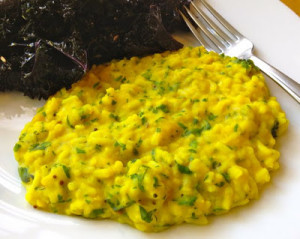
Escarole with Cannellini Beans

